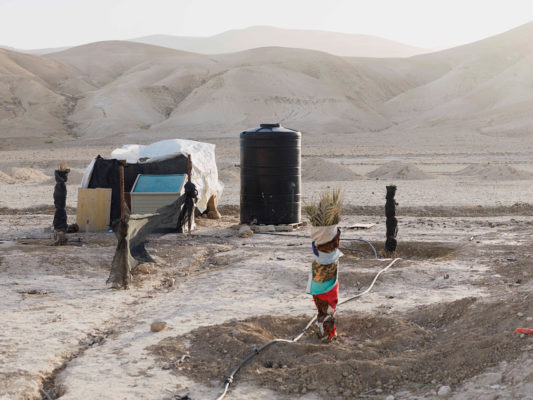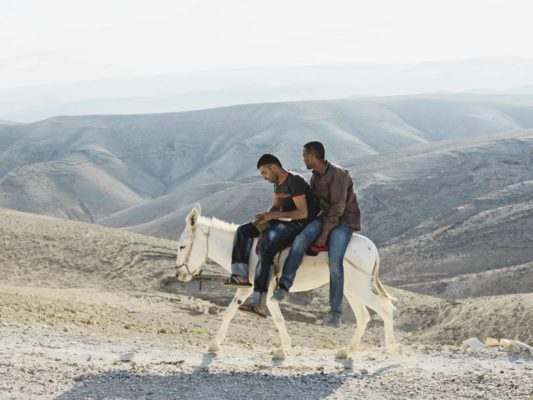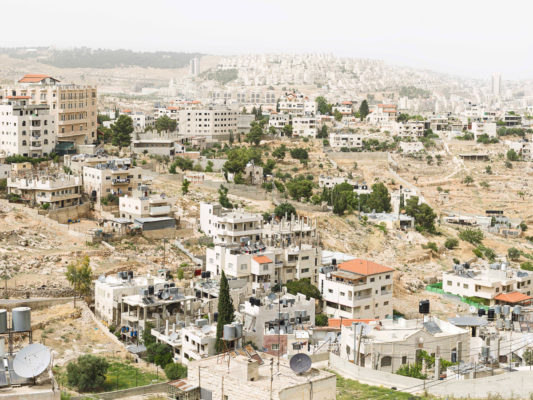Philippe Chancel
Born in 1959 in Issy-les-Moulineaux, French photographer Philippe Chancel lives and works in Paris. Introduced to photography at a very young age, he studied economics at the University of Nanterre and journalism in Paris. For over 20 years, he has been experimenting with photography in a complex territory between art, documentaries and journalism. His work is a constantly evolving exploration of the status of images in the contemporary world.
His beginnings in photojournalism were defined by a series of reports in the former Soviet states. He gradually asserted a new approach to documentary photography, particularly in his work on the contemporary art world, which has been the subject of several books. DPRK, his vision of North Korea, was first shown at Les Rencontres d’Arles in 2006. The publication of a book on DPRK by Thames & Hudson drew his first international recognition. Emirates Project was presented for the first time at the 53rd Venice Biennale (Abu Dhabi pavilion), then in the exhibition Dreamlands at the Centre Pompidou in 2010. Other exhibitions followed worldwide. Philippe Chancel was a Pictet Prize finalist in 2012 for his work Fukushima: The Irresistible Power of Nature. His works are included in many public and private collections, and he is producing commissioned work for major cultural institutions in France and throughout the world.
Project
Datazone
Philippe Chancel proposes to continue exploring new territories as part of his ongoing work in progress, “Datazone”: notably, Jordan, Xalapa, Meroë, Tomsk, and Ghardaia.For Chancel, these areas of tension, distanced from the outside world and the media, are emblematic, often surreal, and reflect major political and social issues of our contemporary civilization.
“DATAZONE (in progress)
“An image is essential only if each square centimeter is essential”, Michelangelo Antonioni, Les Cahiers du cinéma, 1960
The Datazone project aims to look deeper into the complexity of emblematic territories around the world that are theatres for recurrent acts against civilization or important occurrences unknown or unaddressed by the media. In my opinion, these areas of tension are representative and embody major concerns civilization. Datazone explores the landscapes through the lens of photography; with no restriction to genre, including: architecture, landscape, portraiture, street scenes, and public and private spaces. The combination of these usually distinct genres of forms into a synthetic but detached vision of these surreal scenes.
Inspired by William Burroughs’s novel, Interzone, particular for its use of fragmentary writing conceived as a way to transcend mental boundaries with an intricate progression through unexplored areas, Datazone similarly highlights the currents of contemporary political and social trends – whose sensitive areas, usually inextricable and invisible, are symptomatic. Halfway between the truth (the document) and the untruth (the narrative fiction caused by the viewpoint), this project was born in 2005 with my first series about the normality of appearances in North Korea. I then continued the project with research into the colonization of reality through fiction, realized in the United Arab Emirates.
Somewhere between the severity of North Korea and the oil wealth of the Emirates, Astana, the new capital of Kazakhstan, embodies the powerful and longstanding will to look towards the 21st century, establishing itself as a new great power through neo-futurist architecture that reminds the splendour of the former Soviet empire. The images taken on site represent tangible signs of these incredibly rapid changes, exemplified through the architecture and the inhabitants of the capital.
It is in southern Nigeria in June 2013, at the edge of the Niger delta, that I have seen an entire ecosystem of great biodiversity found and then devastated by the foolishness of black gold. Today, Ogoniland, once a paradise for the Ogoni people traditionally living from agriculture and fishing, has been turned into a nightmare. The blame lies with multinational oil companies that operate one of the best crude oil refineries in the world in violation of the most basic environmental rules. Repeated ruptures of pipelines that perfuse the waters of the delta are the major cause of widespread pollution of water, land, air, and the indiginous flora and fauna, calling into question the very existence of mankind.
With the aim of keeping up with this work in progress, I wish to explore other areas constantly delving in places hidden from the rumors of the outside world or, on the contrary, proclaiming day after day their stigmas. Certain “datazones” have already been documented: Fukushima, Port-au-Prince, Kabul, Marikana (South Africa), while some others are yet to be explored: Jourdain’s border (running up), Xalapa, Meroe, Tomsk, Ghardaïa.”






